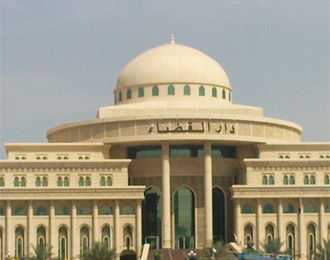
Sharjah, April 23: A Dh1.5m civil case against 17 Indians, who had earlier won a reprieve from death sentence, has been adjourned to May 7.
The Sharjah Civil Court of First Instance on Sunday adjourned the civil case filed by two Pakistani brothers, who had claimed that they were assaulted by the 17men during a group fight of bootleggers in which another Pakistani expatriate, Misri Nazir Khan, was killed in January 2009.
On Sunday, a member of the court’s medical panel submitted a medical report to the court, which had, in its last hearing, ordered the medical assessment of the injuries and disabilities sustained by the petitioners, Mushtaq Ahmed and Shahid Iqbal.
‘A copy of the medical report presented to the court today was given to the advocates of the defendants and the petitioners as well...and the court adjourned the case to May 7,’ said advocate Bindu S Chettur of Mohamed Salman Advocates and Legal Consultants that was appointed by the Indian government to defend its citizens.
‘Now that the medical evidence for the petitioners’ disabilities has been submitted, we will present our defence in the next hearing,’ she said.
The court is expected to look into the extent of injuries and permanent disabilities sustained by the brothers, who have claimed they were left jobless after the incident.
The 17 men were spared the death sentence awarded by an appellate court for the murder after being pardoned by Khan’s family. A record blood money of Dh3.4m was raised by Indian businessmen and community members. The court then reduced their sentence to two years in prison followed by deportation.
The same court, in February, sentenced them to another six months’ imprisonment for bootlegging. This followed a reopening of the case as the Federal Supreme Court referred the criminal case back to the Appeals Court. The prosecution had appealed the previous judgement of the Appeal Court in the apex court citing that it did not consider the charges of bootlegging and assault.
However, the convicts did not have to serve the additional jail term as they had already spent more than three years in jail. The release of the 17 men, 16 from Indian state of Punjab and one from Haryana, can now happen only after the civil case is closed.




Comments
????????? ?? ?????. ???????
?? ?? ?????? ? ??? ????. ??? ??????,
??? ???????? ????? ??????????? ???????????
???????? ???? ?? ????? ??????????.
Here is my blog :: ??????
?????: https://xn----7sbvehqfibu7aj.xn--p1ai/
Add new comment